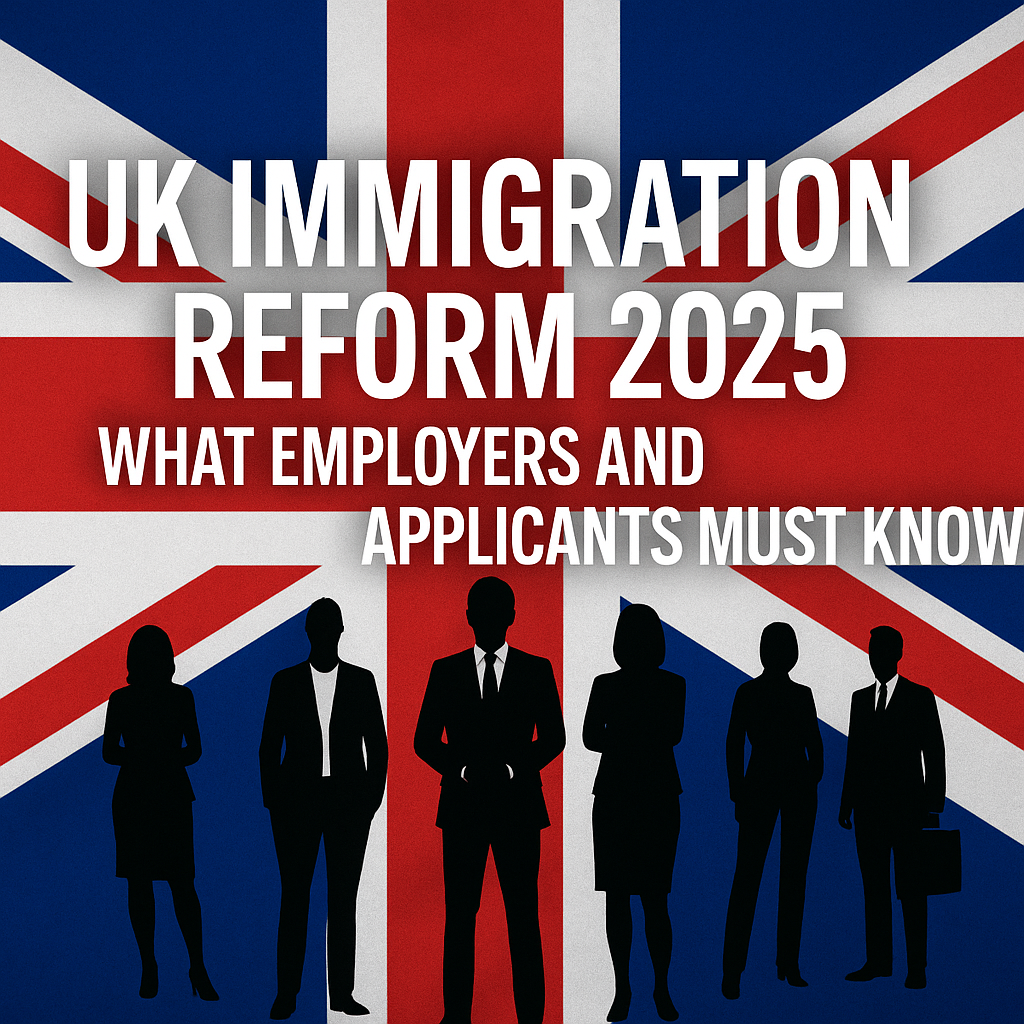UK Immigration Reform 2025: What Employers and Applicants Need to Know
The UK Government has unveiled a landmark White Paper, titled “Restoring Control over the Immigration System”, which sets out a series of sweeping reforms aimed at reducing net migration and realigning immigration policy with domestic labour priorities and long-term economic sustainability.
Need Help Understanding the 2025 Immigration Reforms?
Our expert advisors at Worldwide Immigration are ready to assist you.
Book a Consultation Today: Click here to schedule your appointment
We remain committed to providing clear, professional immigration advice tailored to your unique situation, as UK policies continue to evolve.
Why These Reforms Are Happening
In 2023, net migration to the UK reached 906,000, driven largely by increased international recruitment in lower-skilled sectors and a significant rise in visa dependants. According to the government, past immigration policies have:
- Undermined public confidence
- Distorted labour market dynamics
- Discouraged employers from investing in domestic workforce training
The 2025 reforms signal a strategic shift towards a skills-based immigration system that promotes integration, contribution, and workforce development over reliance on short-term overseas labour.
Key Measures Introduced in the 2025 Reform
1. Skilled Worker Visa Reform
The skill threshold for visa eligibility is being raised from RQF Level 3 (A-level equivalent) to RQF Level 6 (graduate level). This means lower-skilled job roles will no longer qualify under the Skilled Worker route, limiting access for many employers previously reliant on international labour.
2. Closure of the Social Care Visa Route
New overseas applications for social care roles will be discontinued. This is due to rising concerns about labour exploitation and over-dependence on migrant workers in the care sector.
3. Temporary Shortage Occupation List
A new Temporary Shortage List will be introduced. Only sectors with clear, short-term shortages—backed by a strategic workforce development plan—will be allowed access to sponsored visas via the Points-Based System.
4. Stricter Salary and English Language Criteria
Applicants and their dependants will now need to meet:
- Higher salary thresholds
- Enhanced English language requirements
These changes aim to ensure better integration and economic self-sufficiency among migrants.
5. Settlement and Citizenship Overhaul
Pathways to Indefinite Leave to Remain (ILR) and British Citizenship will be restructured to reward long-term contribution, language skills, and integration into British society.
6. Labour Market Evidence Group
A new Labour Market Evidence Group will be tasked with continuously evaluating:
- Sector-specific labour needs
Employer training efforts
This ensures that immigration policies are responsive and aligned with UK domestic workforce priorities.
What These Reforms Mean for Employers and Applicants
For Employers:
- You will need to demonstrate strong efforts to hire and train UK-based workers.
- Labour market testing, upskilling initiatives, and reduced dependence on overseas labour will become core to future sponsorship approvals.
For Migrants and Applicants:
- Visa options will be more limited for lower-skilled roles.
- You must meet higher standards for entry, extension, and eventual settlement or naturalisation.
Those with long-term career goals in the UK will be expected to contribute economically and integrate linguistically and culturally.
UK Immigration Strategy: Skills, Sustainability & Sovereignty
The 2025 immigration reforms mark a decisive pivot towards a long-term, skills-driven immigration model. While this may mean tighter access to UK visas for many, it also encourages the development of a more resilient, self-sufficient domestic workforce.
Whether you are an employer navigating sponsorship rules or an individual planning your move to the UK, it’s critical to understand how these changes affect your rights, responsibilities, and opportunities.


